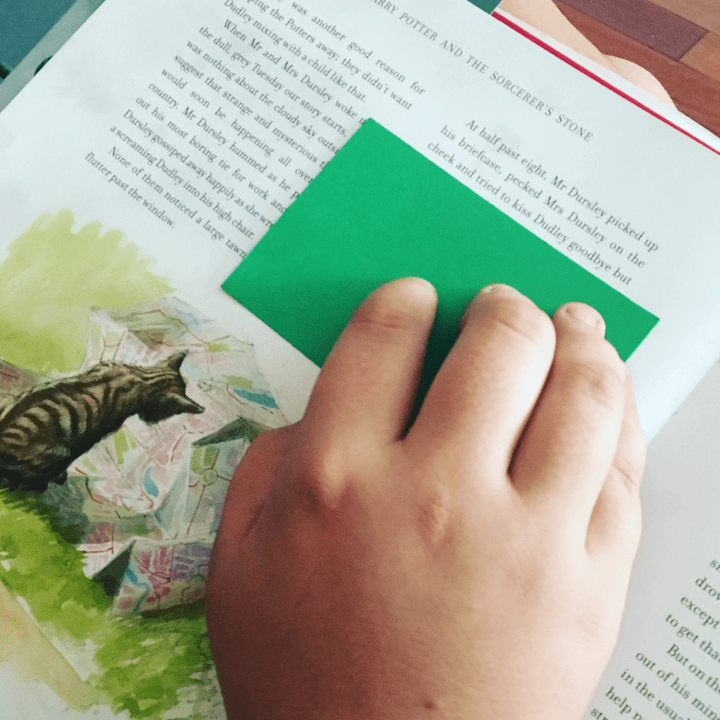When Your Struggling Learner Refuses to Try
If I had saved all the pencils my sons have snapped in half over the past nine years of homeschooling, I am certain I could build a small cabin in woods with them.
(Both of my boys have a habit of blaming the pencil for their learning struggles.)
Although they are very different learners, both struggle with coping, staying calm and remaining engaged when our schooling gets tough. The truth is, much of the time, and for a variety of reasons, they simply refuse to try.
Nothing makes me more frustrated as a homeschooling mom than when my struggling learner refuses to try.

This post contains affiliate links. See full disclosure policy for more details. Email and RSS feed readers may need to visit the blog to access affiliate links.
This year, I am committed to easing the stress of this resistance. For all of us!
When my oldest son was in public school, much of our life revolved around him refusing to leave the house or get out of the car in the morning to even go to school. And then there was the repeated refusal to complete homework at night.
The seemingly constant resistance was a nightmare and one of the main reasons we decided to homeschool in the first place. But as time has gone on, some of the same issues have resurfaced.
The balking when the books come out.
The shrug when asked by his doctor if he likes being homeschooled.
The pile of broken pencils.
Because I want our learning to be as joyful as possible, and because we typically follow a more interest-led, project-based style of schooling, decreasing this resistance has become a top priority – especially as my boys head into middle school and high school this year.

When Your Struggling Learner Refuses To Try
The best way to address a refusal to try and to engage in learning is to try to understand what is causing it. In my experience, there are five key reasons my sons might resist learning.
1. It’s Boring
How many times have I heard this? If what I am hoping we will study is too easy or just plain dull, it will almost always cause a bit of resistance. I am not sure I blame them.
2. It’s Difficult
If the information is way beyond their grasp and understanding, or if they forgot some of the foundational pieces necessary for learning a new concept (this is an issue particularly with math), my boys will more than likely just refuse to try. It’s not an ideal response, but it is the reality.
3. Rigid Thinking
Rigid thinking is a substantial factor in my oldest son’s success or refusal when it comes to learning. If he perceives something as unnecessary and/or idiotic (his word), he will flat out refuse to spend his time on it. This rigid thinking is part of his learning differences. It is also part of his teenager-ness.
4. Anxiety and/or Fear of Failure
If my youngest is feeling anxious about the learning (or anything else), lessons quickly become strenuous. Sometimes, this is only because he is afraid he will fail and feel discouraged about his learning struggles. Sometimes, the anxiety comes up independent of what we are learning and derails him. Either way, anxiety is a powerful factor in a child’s refusal to learn and try.
If you suspect that your child may have a learning disability, try the free, online learning disabilities test from Lexercise.
5. Physical Concerns
If my children are hungry, sleep deprived or haven’t been outside for fresh air in a while, learning becomes so much more difficult. I understand. When I have had four cups of coffee but forgot to eat breakfast, I start to give up on our learning too.

How To Respond When Your Child Refuses To Try
Now that we have discussed some key factors as to why our children refuse to try, I want to share a little bit about what helps my family get back on track when one more of my kiddos is resistant to learning.
Start Small
Sometimes, the best way to move forward is to take a few steps back. When I notice increased refusals, meltdowns, and overall negativity associated with our learning, my first response is to slow things down. Reviewing past topics to ensure retention serves to increase my children’s confidence in their own abilities. It also lessens the fear of failure and subsequent anxiety.
In the same way, I also shorten lessons, keeping them to about 15-20 minutes max. I try to make it feel as effortless as possible initially until my sons show signs of feeling more equipped to move forward.
Discuss The Value
For my oldest, this is essential. Because he will absolutely refuse to learn something he does not see as valuable, I find the best way to get him back on track is to help him understand why we are studying a particular topic. For example, he struggles to see how he will ever need math in life. He has a calculator on his phone and that is quite enough as far as he is concerned. Once we looked at the requirements for high school graduation in our state, however, he saw the value in his continued practice and learning. He may not enjoy it all the time, but he doesn’t totally refuse either.
Ask For Input
This is one of the best suggestions I have for helping the child who is refusing to learn. I ask him either what he would like to learn (if the current topic is one I am willing to let go) or how he would like to learn it. For example, my youngest struggles with writing but loves creating stories. He suggested that he make up stories and tell me what to write for our creative writing program. I happily accepted the position of scribe.
Take A Break
There are days when it just isn’t working. Rather than force it, sometimes the best response to my sons’ resistance is to take a break. Depending on the day, this might mean a quick trip to grab lunch outside the house, listening to an audiobook in the car, and calling it a day. Other days, it might mean going for a swim in our pool and then getting back to work. It’s effective, and I find that my children are less likely to resist when they have had a chance to breathe and refuel a bit.

All children will, at one point or another, for one reason or another, refuse to try. It is a part of learning their own capabilities and the march towards independence and adulthood. While it can be difficult in the moment, please, let me encourage you, one day, week, or even month does not define an entire homeschool education.
When our children refuse to try, what better place to learn how to manage and cope than at home, with a teacher who loves them!
What works for you when your child refuses to try?
You Might Also Like
Shawna Wingert is a special education teacher turned writer, speaker and consultant. She is also a homeschooling mom of two brilliant boys with differences and special needs. Shawna has written four books for parents of special needs – Everyday Autism, Special Education at Home, Parenting Chaos and her latest, Homeschooling Your Child With Special Needs. She has also been featured in special needs discussions on Today.com, The Mighty, The Huffington Post and Autism Speaks. You can find her online at DifferentByDesignLearning.com. You can follow Shawna and Different By Design Learning on Pinterest, Facebook and Instagram.














Thank you for sharing this. I have a teen who expresses all 5 of the keys. He is an ESTJ and I’m an INFJ. So we already bump heads personality wise. It is nice to know I am on the right track with him. I use a lot of the strategies you discuss to help us combat these struggles. Some days they work better than others. It’s a work in progress. I’m saving this post to keep as a reminder that I’m moving in the right direction.
My son is only six and I find in…then.. statements to be an effective motivator.
I definitely needed this today!! Thank you so much! I loved the comment that ‘ one day, a week, even a month does not define an entire homeschool education. Sometimes I get so worried that I am failing as a homeschool mom when we have a day that didn’t go as planned and this was a perfect reminder that we are educating them much more than we think.
I have a struggling learner who often gives up, stops trying, and has a melt down when she feels tasks are too hard, she’s made too many mistakes, or gets too distracted. I recently came across a book titled Smart But Scattered. It totally described the “executive skills” my daughter struggles with: organization, task-initiation, emotional control, time management, focus, etc… All things that affect her success in homeschooling. The book addresses each executive skill and how to help your kids improve those skills. It’s been a big help so far!